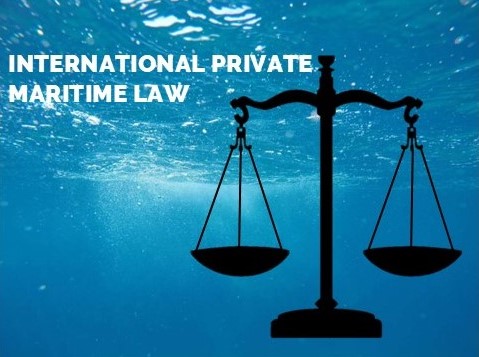 The decreasing ice cover in Arctic waters is opening new opportunities for shipping traffic and the development of hub-port infrastructure to support global corporations. As Arctic routes become increasingly viable, private shipowners must engage with various international actors to operate successfully in this evolving region. The transport of people and commercial goods for business and profit in these areas is governed by international private maritime law.
The decreasing ice cover in Arctic waters is opening new opportunities for shipping traffic and the development of hub-port infrastructure to support global corporations. As Arctic routes become increasingly viable, private shipowners must engage with various international actors to operate successfully in this evolving region. The transport of people and commercial goods for business and profit in these areas is governed by international private maritime law.
Foundations of International Private Maritime Law
International private maritime law consists of civil law instruments that regulate contracts of national origin, such as those governing the carriage of goods and passengers by sea. However, due to the transnational nature of maritime transport, where vessels frequently cross national boundaries, these contracts often fall under international jurisdiction.
The need to harmonize national legal frameworks has led to the creation of international private law conventions, which aim to establish uniform contractual regimes across jurisdictions. This harmonization ensures greater legal predictability and efficiency in maritime commerce.
Intersection of Private and Public Maritime Law
Although the carriage of goods and passengers by sea is typically regulated through bilateral private contracts, these contracts are not isolated from international public maritime law. Instruments like SOLAS (Safety of Life at Sea) and MARPOL (Prevention of Pollution from Ships) influence private agreements by introducing public safety and environmental standards. These international regulations are often implicitly or explicitly incorporated into carriage contracts through detailed clauses.
Regulation of Arctic Passenger Transport
The growing interest in Arctic tourism has heightened the need for regulation of passenger transport by cruise ships. The safety of passengers traveling in Arctic waters is governed by international law, particularly under SOLAS.
Additionally, the Athens Convention Relating to the Carriage of Passengers and their Luggage by Sea, which entered into force in 1976, complements SOLAS by addressing liability for personal injury and damage or loss of passengers' belongings. The Convention holds carriers responsible for such damages; however, it does not provide specific legal criteria for establishing negligence.
Marine Insurance in Arctic Operations
One significant gap in international private maritime law is the absence of unified international regulation for marine insurance. As a result, insurance for passengers traveling in Arctic waters is typically governed by national legislation and local market practices. This leaves room for variation and legal uncertainty in cross-border claims and liability assessments.
Liability and Compensation for Marine Pollution
Liability for ship-source pollution damage is largely governed by the international regime established under the International Maritime Organization (IMO). When a pollution incident involves an oil tanker, national governments—who oversee cleanup operations and preventive measures—may also assume responsibility for compensation. Shipowners are liable up to a certain limit, which is usually covered by marine insurance.
Two important legal instruments regulate such incidents:
- The 1992 Civil Liability Convention (CLC)– This focuses on oil tanker spills and establishes the liability of private shipowners for pollution damages.
- The 2008 Bunkers Convention– This extends liability to bunker oil spills from non-tanker vessels. Unlike the CLC, the Bunkers Convention does not provide for a separate, freestanding limitation of liability for shipowners.
Treaty Enforcement and Legal Harmonization
Efforts continue to create a cohesive international private legal framework for marine shipping operations that aligns with international public standards. For international treaties, agreements, or conventions to be enforced, national legal systems must formally accept them by signing and ratifying the instruments.
While states retain discretion in how they implement these agreements, once a country becomes a party to a treaty, it assumes legally binding obligations under international law. This process ensures that international private maritime law evolves in tandem with public international standards and remains applicable across diverse jurisdictions.







